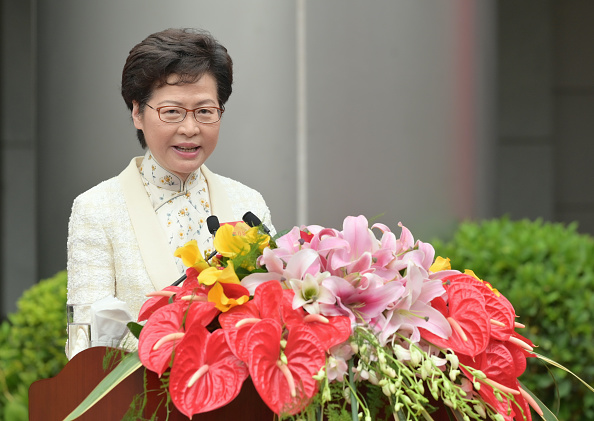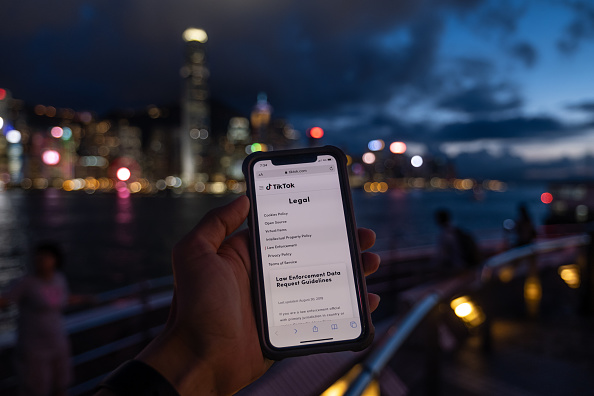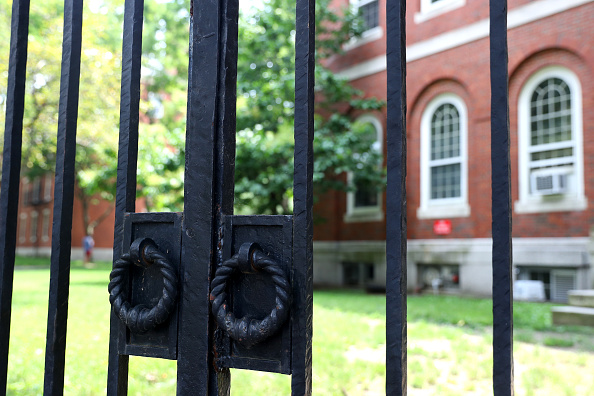
 A Historic Moment
A Historic MomentHong Kong's national security law is in full force, and the city is beginning to see the effects. Books by some activists have been removed from libraries for review, certain political slogans and protest banners have been outlawed, Chinese intelligence agents are now allowed to operate in Hong Kong for the first time since the 1997 handover, and Beijing has opened up the new Office for Safeguarding National Security to oversee Hong Kong's enforcement of the new security law. Speaking at the inaugural ceremony, Lam called it a historic moment and said we "are witnessing another milestone in the establishment of a sound legal system and enforcement mechanism for maintaining national security in Hong Kong."
In response to the changes, Google, Twitter and Facebook said they were no longer sharing information with Hong Kong law enforcement, while the Trump administration is also trying to decide whether to punitively remove Hong Kong's currency peg to the U.S. Dollar, which could hurt U.S. banks more than China's and shock the world's financial system. As the world watches how Hong Kong fares, onlookers are also questioning what the implications might be for Taiwan. For more on the topic, read "Washington's Hong Kong Humiliation Produces Tougher Stance on Taiwan", from Ted Galen Carpenter, Senior Fellow at the Cato Institute, on China-US Focus.
 Banning TikTok
Banning TikTokTikTok has become a national security concern for a growing number of countries all over the world, which are increasingly considering if and how to block the world's most valuable startup over privacy concerns involving user data. Despite 80 million Americans using the video-sharing-app every month, the Trump administration is considering a ban on the Chinese-owned company to limit U.S. users' access. India has decided to block TikTok and other Chinese apps last month, while Denmark and Turkey have also expressed concerns.
As concerns have mounted over the video-sharing app's safety, the company has brought on a number of new American executives, including former Disney executive Kevin Mayer as its new CEO. The American TikTok executives serve as the key link to ByteDance, the parent company headquartered in Beijing. When asked about whether the company is under foreign influence, a spokesperson stated that TikTok would "never provided user data to the Chinese government, nor would we do so if asked." The company also plans to separate TikTok from much of its Chinese operations, and has noted that users' personal data would be stored in the United States and not in China. But, U.S. officials remain concerned that the Chinese government is potentially building a large database of information that could be used for espionage.
 Pandemic Education
Pandemic EducationEarlier this week the Trump administration announced that it would ban international students from returning to or remaining in the United States if their universities were to hold virtual classes during the upcoming fall semester. The decision, which would be backed up by the U.S. Immigration and Customs Enforcement as well as the Department of Homeland Security, would affect roughly 360,000 Chinese students currently studying in the U.S. and is largely interpreted as a move to pressure universities into reopening, despite the escalating infection rates seen in the U.S.
Both Harvard and MIT sued ICE and the DHS this week. In a message to affiliates, Harvard University President Lawrence S. Bacow wrote, "The order came down without notice—its cruelty surpassed only by its recklessness… We believe that the ICE order is bad public policy, and we believe that it is illegal."
Prepared by China-US Focus editorial teams in Hong Kong and New York, this weekly newsletter offers you snap shots of latest trends and developments emerging from China every week, while adding a dose of historical perspective.
- 2020-07-03 Handover Tested
- 2020-06-27 Relationship Spiral
- 2020-06-20 Bolton Bombshell
- 2020-06-13 Fits and Starts
- 2020-06-06 Confluence of Crises
- 2020-05-29 Questions of Autonomy
- 2020-05-22 Pandemic Decisions
- 2020-05-16 Fractures and Fault Lines
- 2020-05-09 Attacks and Counterattacks
- 2020-05-02 Retaliatory Actions
- 2020-04-24 Sinking Perceptions
- 2020-04-18 Pandemic World
- 2020-04-11 The Long Road Back to Normalcy
- 2020-04-03 Shifting Gears
- 2020-03-28 Cooperation or Confrontation
- 2020-03-20 World in Turmoil
- 2020-03-13 Global Emergency
- 2020-03-06 Global Strains
- 2020-02-28 Coronavirus Gone Global
- 2020-02-22 The Virus Continues
